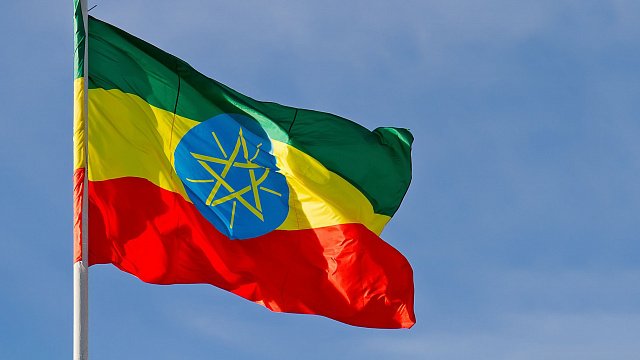28.02.24
15:35
Ethiopia’s Accession to BRICS: Economic Growth and Political Co-operation
How membership in the association will allow a developing country to move to a different level in the global economy
Ethiopia, one of Africa’s largest countries, has always been ambitious and eager for economic development. Recently, the country has joined BRICS.
BRICS membership could have a profound impact on Ethiopia and its economy. Let’s look at a few potential pros and prospects of such membership.
Enhanced economic co-operation
As a developing country, Ethiopia can seek help and support from other BRICS members. They can provide technical support, expertise and funding for various projects such as infrastructure, education, health and agriculture. This would result in accelerated economic growth and improvement in the living standards of the country’s people.
Ambassador Extraordinary and Plenipotentiary of the Federal Democratic Republic of Ethiopia to the Russian Federation Uriat Cham Ugala in an exclusive interview with TV BRICS said that BRICS will allow Ethiopia to move to a new economic level: “This is an opportunity for Ethiopia to grow. The BRICS countries account for about 40 per cent of the world’s population. In addition, the economies of all these countries are growing rapidly. Joining the alliance opens up for Ethiopia broad prospects for co-operation in many different areas. So our leadership has many expectations.”
Develop trade relations
Membership of BRICS would give Ethiopia access to the huge markets of the member countries. Through this, export opportunities for socio-economic development in Ethiopia could increase significantly. In particular, Russian markets may be interested in Ethiopian coffee, flowers and other agricultural products, while Indian and Chinese companies may show interest in investing in telecommunications and infrastructure. This will diversify Ethiopia’s economic ties with other countries and allow Ethiopia to diversify its economy.
Director of the BRICS+ International Business Forum Tatyana Seliverstova in an exclusive commentary to TV BRICS stressed that Ethiopia’s accession to BRICS will continue to strengthen the African continent’s position within the grouping.
“Ethiopia is the fifth largest economy in Africa. The capital is home to the headquarters of the African Union, where a series of meetings of African heads of state are held annually. Ethiopia’s economy is an emerging mixed economy with strong contributions from agriculture and industry, which account for more than 50 per cent of the country’s GDP. Ethiopia’s accession to BRICS will definitely be important in the direction of integration and economic co-operation between African countries and BRICS member states. I am convinced that it is necessary to involve all African countries more actively in the BRICS+ format, thus creating additional opportunities for trade and investment partnerships. Ethiopia should demonstrate to other African countries the real mechanisms of co-operation within the BRICS framework.“
South-South cooperation
Ethiopian Prime Minister Abiy Ahmed has said his country’s membership in BRICS is beneficial as the grouping promotes co-operation in countries to the south.
In response to questions from parliamentarians, he said Ethiopia’s foreign policy is based on mutual benefit, respect for national interests and sovereignty and their accession to BRICS will boost co-operation with other members of the group. He expressed gratitude to BRICS for their support. At the same time, Ahmed emphasised that Ethiopia’s joined the group in line with the country’s foreign policy.
“We hope our membership into the BRICS mechanism would be advantageous to Ethiopia,” Ahmed told the Ethiopian parliament.
Technology Exchange
The BRICS partnership will offer Ethiopia a unique opportunity to exchange advanced technologies and innovations. Member countries have significant expertise in sectors ranging from information technology to medicine and agriculture. Such exchange can accelerate technological progress and contribute to the development of Ethiopia’s infrastructure and industry.
Photo:
IStock
Back

